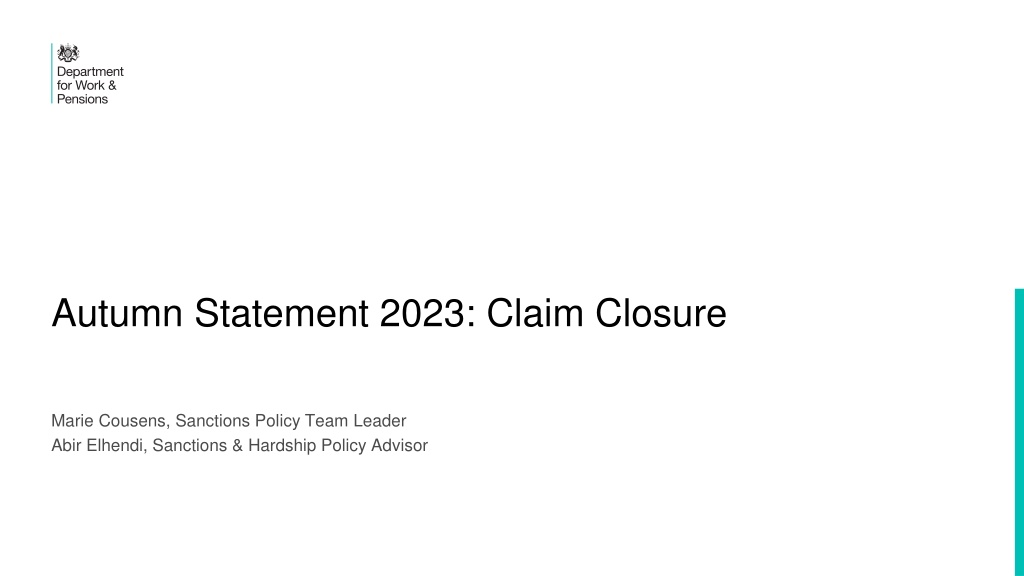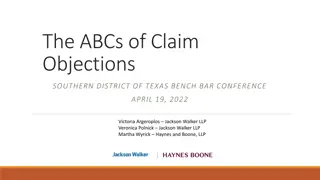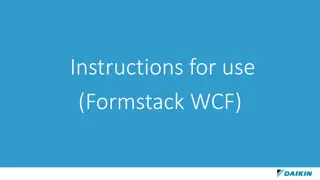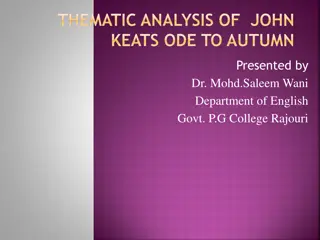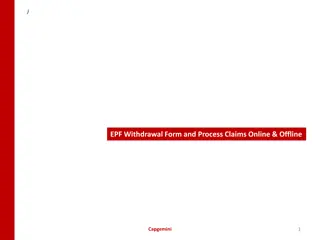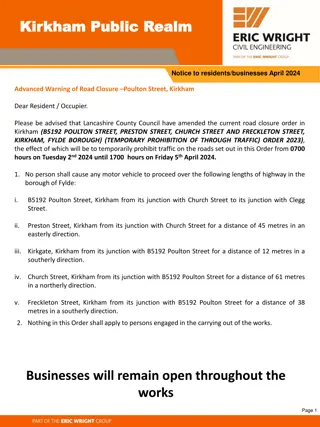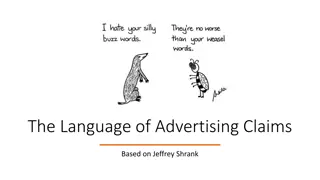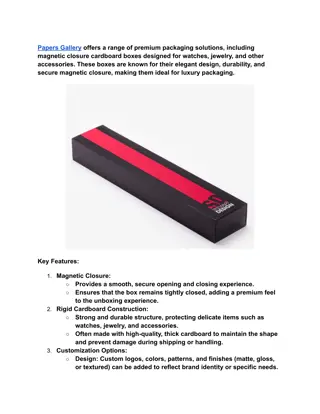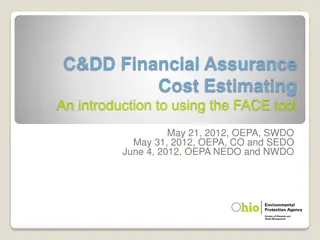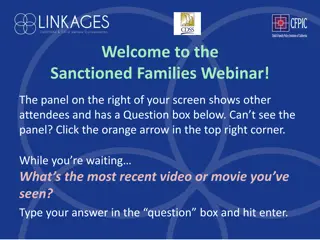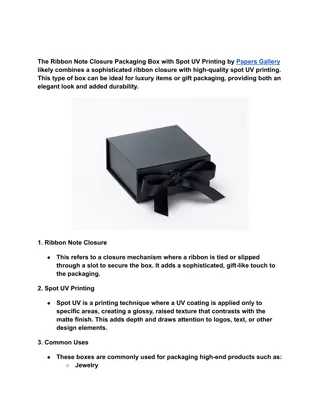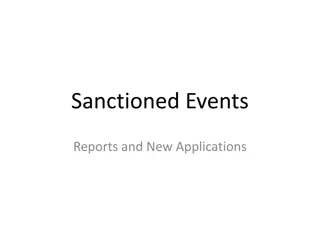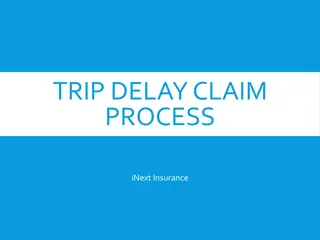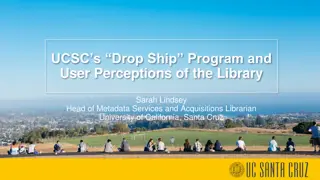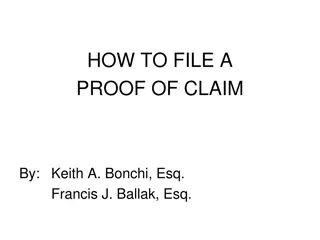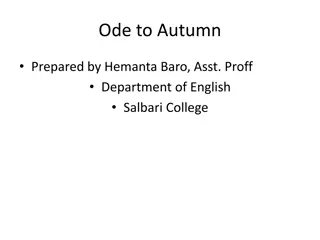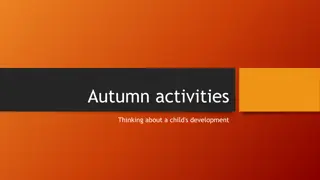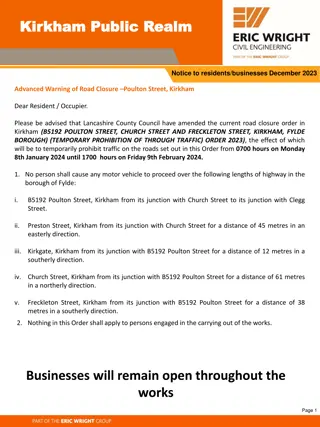Sanctioned Claim Closure Measures in Autumn Statement 2023
Autumn Statement 2023 introduces claim closure measures for sanctioned disengaged claimants, affecting over 97,000 UC claimants. The policy targets claimants with open-ended sanctions of 6 weeks or more, reducing benefits to zero for many. Explore the impact, background, and information-sharing importance of this initiative.
Download Presentation

Please find below an Image/Link to download the presentation.
The content on the website is provided AS IS for your information and personal use only. It may not be sold, licensed, or shared on other websites without obtaining consent from the author.If you encounter any issues during the download, it is possible that the publisher has removed the file from their server.
You are allowed to download the files provided on this website for personal or commercial use, subject to the condition that they are used lawfully. All files are the property of their respective owners.
The content on the website is provided AS IS for your information and personal use only. It may not be sold, licensed, or shared on other websites without obtaining consent from the author.
E N D
Presentation Transcript
Autumn Statement 2023: Claim Closure Marie Cousens, Sanctions Policy Team Leader Abir Elhendi, Sanctions & Hardship Policy Advisor
Overview 1. Background to claim closure 2. The claim closure measure 3. Importance of information-sharing 4. Next steps - your views on how this might impact your customers 2
Sanctioned Disengaged Claimants Disengaged claimant is defined as one who has an open-ended sanction for 6 weeks or more. In August 2023, over 97,000 UC claimants (5%) had been disengaged for 6 weeks or more. Figure 1: Percentage of sanctionable UC caseload disengaged for 6 weeks or Sanctioned disengaged claimants management information, April 2019 to August 2023 - GOV.UK (www.gov.uk) Sanctioned disengaged claimants management information, April 2019 to August 2023 - GOV.UK (www.gov.uk) more, by disengaged duration, April 2019 to August 2023. Sanctioned disengaged claimants management information, April 2019 to August 2023 - GOV.UK (www.gov.uk) Sanctioned disengaged claimants management information, April 2019 to August 2023 - GOV.UK (www.gov.uk) 3
Sanctioned Disengaged Claimants Most disengaged claimants only receive standard allowance therefore in most months a sanction would reduce their benefit to zero. In August 2023, 63,000 (65%) claimants had their benefit reduced to 0 by a sanction. Figure 2: UC claimants disengaged for 6 weeks or more, by entitlement to Sanctioned disengaged claimants management information, April 2019 to August 2023 - GOV.UK (www.gov.uk) Sanctioned disengaged claimants management information, April 2019 to August 2023 - GOV.UK (www.gov.uk) additional UC amounts, April 2019 to August 2023. Sanctioned disengaged claimants management information, April 2019 to August 2023 - GOV.UK (www.gov.uk) Sanctioned disengaged claimants management information, April 2019 to August 2023 - GOV.UK (www.gov.uk) 4
Open-Ended or Low-level Sanctions Low Level sanctions are a blend of open-ended until the claimant complies followed by a fixed term tail depending on how many times they have failed at this level. Sanction levels Sanction durations in days Level Applies to Failures Lowest Low 1 Low 2 Low 3+ All work- related requirement and work preparation groups Failure to comply with a work focused or work search interview requirement Fail to attend a mandatory appointment Fail to participate or comply with a specified work- related requirement (e.g. updating a CV) Failure to attend or participate in a work focused interview Failure to comply and report changes in circumstances relevant to work-related requirements Low (Open-ended sanctions with a fixed term tail) Open ended + Open ended + Open ended + Under 18 0 0 7 7 Open ended + Open ended + Open ended + 0 7 14 28 Over 18 Sanction Rates (% of standard allowance) Work focused interview group Lowest (Open-ended) Lowest 40% Low 1 40% Low 2 40% Low 3+ 40% Under 18 Over 18 40% 100% 100% 100% Note: Low 1 refers to the first time a low-level failure has occurred, Low 2 refers to the second time a low- level failure has occurred, Low 3+ refers to the third or any subsequent times a low-level failure occurs, etc. 5
How to end an open-ended sanction All that is needed to quickly stop an open-ended sanction for failure-to-attend an interview is for the claimant to book and attend another appointment at the Job Centre You can assist claimants to end an open-ended sanction by bringing them into the Job Centre or being on the phone with them. It should be noted, however, that DWP cannot share information with third parties without express written consent. The claimant can contact us to rebook their appointment. If they attend their rebooked appointment, the open-ended sanction will end on the date they made contact to re-book their appointment, not the date they attend their appointment. 6
Claim Closure Measure The claim closure measure looks to close the claims of those who: a. do not re-engage for six months or more following an open-ended sanction decision. b. do not receive additional amounts of Universal Credit from housing or childcare or disability awards, c. and those who do not have new or pre-existing vulnerabilities which impact their ability to look for or take up work. People who are not subject to work-related activity including our most sick and disabled customers cannot be sanctioned and therefore will not have their claim closed. We will also develop new processes to identify any known or new vulnerabilities that may have impacted the person since the sanction decision. Customers who have new or known vulnerabilities or complex needs will be exempt from claim closure. The design of these processes are still in development. 7
Importance of information-sharing Claimants should try to provide as much information as possible about their circumstances, so any requirements they are set are realistic, achievable and reflect their current needs. Claimants can also formally report changes in their circumstances by the most convenient channel face-to-face, by phone or through their online account. 8
Next steps To support the policy development process, we welcome your views on how these proposals will impact on your customers, and how we can best ensure that those with complex needs and vulnerabilities are identified and supported. 9
Annex: Existing protections in the sanctions process Before any referral for a sanction decision is made, the work coach will undertake a pre-referral quality check with the team leader to ensure it is appropriate. The decision maker will take a holistic view of the individual and their circumstances, including any complex needs or vulnerabilities and consider how the work coach can best support the claimant As an extra step, decision-making team leaders check all sanction decisions, where claimants have known complex needs or a disability. Finally, we inform the claimant immediately of the decision to impose a sanction through their journal and preferred method of contact. We always provide them with details of how to bring a sanction to an end, the right of reconsideration and appeal and how to apply for a recoverable hardship payment. 10
